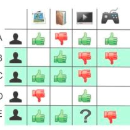Graph collaborative filtering (GCF) has gained considerable attention in recommendation systems by leveraging graph learning techniques to enhance collaborative filtering (CF) models. One classical approach in GCF is to learn user and item embeddings by modeling complex graph relations and utilizing these embeddings for CF models. However, the quality of the embeddings significantly impacts the recommendation performance of GCF models. In this paper, we argue that existing graph learning methods are insufficient in generating satisfactory embeddings for CF models. This is because they aggregate neighboring node messages directly, which can result in incorrect estimations of user-item correlations. To overcome this limitation, we propose a novel approach that incorporates causal modeling to explicitly encode the causal effects of neighboring nodes on the target node. This approach enables us to identify spurious correlations and uncover the root causes of user preferences. We introduce Causal Neural Graph Collaborative Filtering (CNGCF), the first causality-aware graph learning framework for CF. CNGCF integrates causal modeling into the graph representation learning process, explicitly coupling causal effects between node pairs into the core message-passing process of graph learning. As a result, CNGCF yields causality-aware embeddings that promote robust recommendations. Our extensive experiments demonstrate that CNGCF provides precise recommendations that align with user preferences. Therefore, our proposed framework can address the limitations of existing GCF models and offer a more effective solution for recommendation systems.
翻译:暂无翻译




